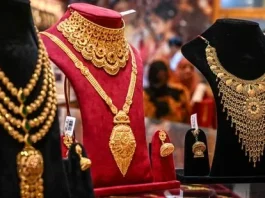An app informs users whether an outlet is rated yellow or blue, based on affiliations
Hong Kong (Bloomberg): In deciding where to dine out in Hong Kong these days, many local residents are turning to a Yelp-like mobile app: Not for reviews of food or service, but to separate “yellow” from “blue” eateries.
After more than seven months of unrest, even choosing a restaurant has become political in Hong Kong. Of 3,000 eateries listed on the app, more than 1,300 are yellow and 1,600 are blue – including cafes, tea places and snack shops. The yellow hue represents outlets viewed as pro-democracy or supportive of the protests, an association dating to the city’s Umbrella Movement in 2014.
Blue refers to pro-government or pro-Beijing leanings.
No staying on sidelines
The effort to politicize restaurants, many of which are small and locally owned, is part of the protest movement’s strategy of forcing businesses and residents to pick sides as they pressure the government for more freedoms. Even if some shop owners pretend to be yellow, which is occurring more amid the blue boycott, this helps keep up the protest momentum, said Kelvin Lam, a former Greater China economist at HSBC and now a member of the District Council.
“That’s already a good thing to have in this environment,” Lam said.
While economists say the strategy is unlikely to have a significant economic impact, boycotting police-linked businesses is exacerbating tensions in the former British colony. Restaurant traffic over the Lunar New Year holiday is also likely to be hit due to worries about the spread of the new SARS-like coronavirus.
“WoLeiEat”, which means “to eat with you” in Chinese, was developed by a 25-year-old IT worker who asked to be identified by his first name King. Available to Android phone users in October and iPhone users in November, it’s had about 600,000 downloads in three months and 70,000 active users a day, he said.
King, who is pro-protester, said he wants people to use the app to “tell the government what we want”. He’s now expanding the list to include other retailers, such as beauty salons and stationery shops.
The color coding is based on whether businesses supported a general strike and whether they help protesters, such as by providing free food. A higher yellow score is awarded to outlets seen as actively supporting the pro-democracy protests.
Great divide
Tommy Wu, a senior economist at Oxford Economics Hong Kong Ltd., said the yellow vs. blue divide is “more about demonstrating one’s political ideology rather than making a real impact” on the economy.
Even with the help of the “WoLeiEat” mobile app, customers may find distinguishing a yellow restaurant from a blue one tricky since there is no precise definition and people contributing to reviews often make arbitrary remarks. Being listed as a blue shop risks becoming the target of vandalism.
“Customers making their own decision – I don’t think it’s a problem,” said Tommy Cheung, a lawmaker representing the catering industry. “The only problem is if you throw petrol bombs at the shops when they represent a different political stance.”
Choosing cakes can become politicised
Vicky Tam, a Hong Kong professional who is getting married this month, illustrates the divide. She has switched her wedding cake order – worth about HK$8,500 ($1,094) – from Maxim’s Cakes, the city’s biggest bakery chain with about 180 stores. She’s instead using another local chain, Saint Honore Cake Shop, where cake sales have soared 50 per cent since September.
“As a so-called WoLeiFei, this is the least thing I can do,” Tam said, referring to a Cantonese term for protesters who aren’t on the front lines and view themselves as peaceful. She joined a boycott of the group after comments made in September by Annie Wu Suk-ching, the eldest daughter of Maxim’s Group founder James Wu.
Speaking at the United Nations representing the Hong Kong Federation of Women, Annie Wu said a “small group of radical protesters”, using “systematic and calculated violent acts” didn’t represent the views of all 7.5 million Hong Kong residents. She went on to say in an interview with the Global Times, a Chinese Communist Party newspaper, that she had “given up” on Hong Kong’s young people.
Her comments led to outrage by protesters in Hong Kong and prompted vandalism of Maxim’s restaurants and shops, including Starbucks outlets. Maxim’s Caterers Ltd. runs more than 1,300 eateries mainly in Hong Kong and Macau, including 160 Starbucks coffee shops. The company had annual revenue of HK$20.27 billion at the end of 2018, according to an auditing document.
Simon Wong, president of the Hong Kong Federation of Restaurants and Related Trades, said most restaurants don’t want to be part of a political fight.
“Nearly 70 per cent of the food ingredients are from mainland China,” he said. “If restaurants stop using them, they can’t even open for business.”
Some yellow shops say they are trying to help the protest movement in another way: Hiring young people whose employment prospects are adversely affected by the political rift. Still, the majority of the available jobs – such as waiters and shop assistants – are low-skilled positions.
“I would do whatever I can,” said Vincent Hung, who owns Brew Note Coffee Roaster, a yellow shop in the North Point area. “Like employing protesters, even just one or two.”




